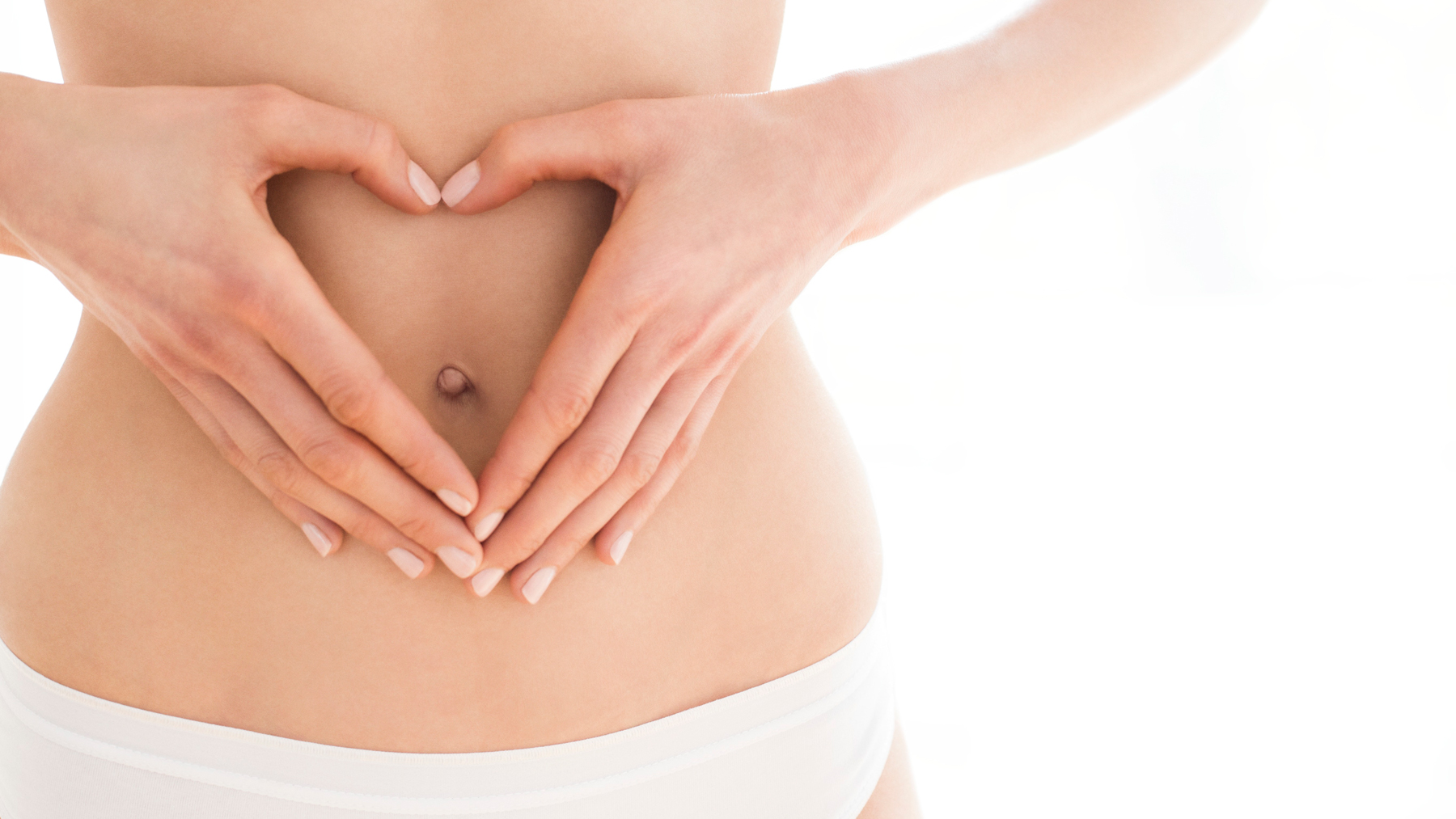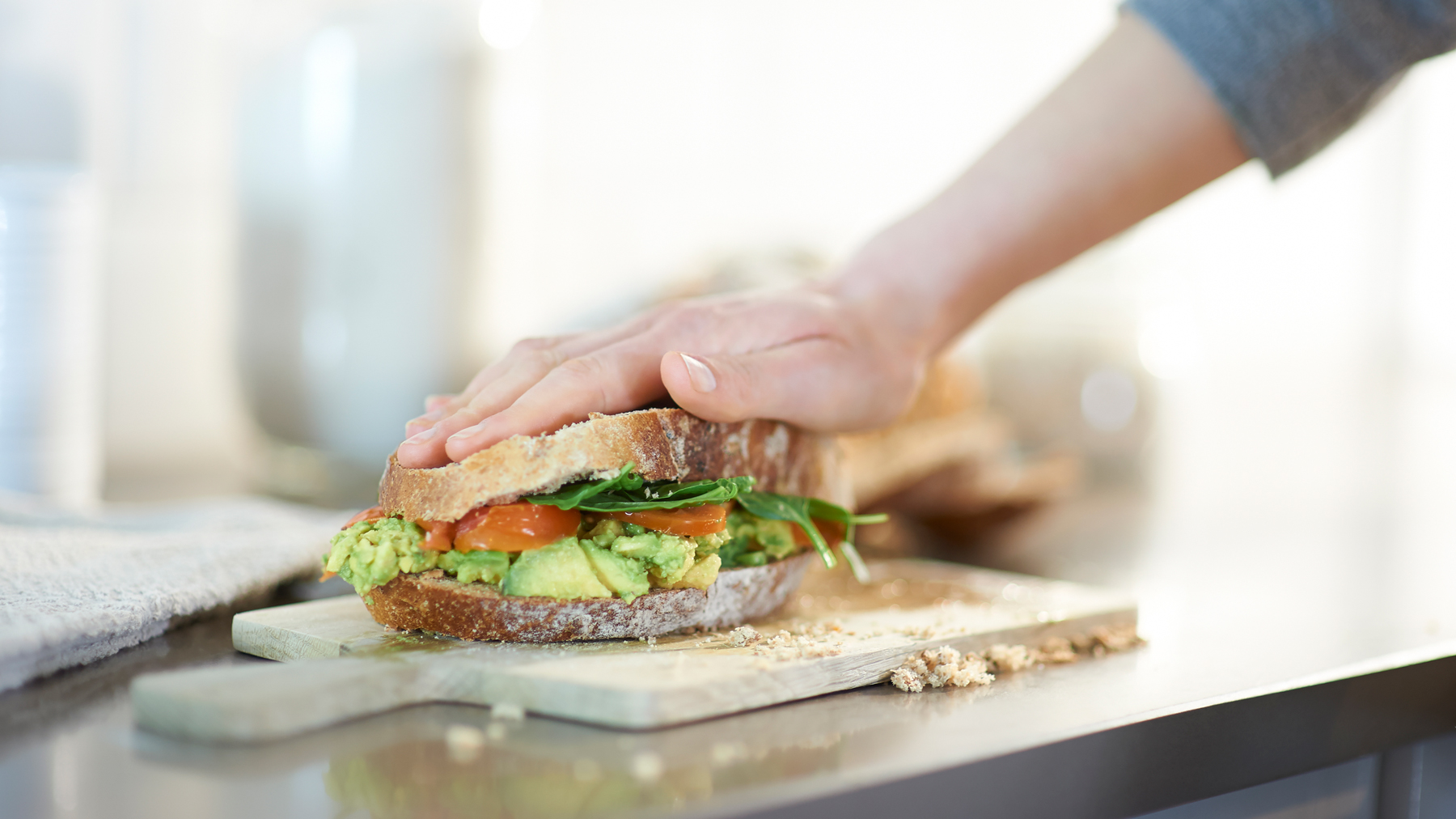How to improve gut health
Learning how to improve your gut health doesn’t have to be complicated. Gut health expert and nutritional therapist, Eve Kalinik, breaks it down for us


Discovering how to improve gut health can be a gateway to strengthening your immunity and boosting your overall health and wellbeing. When you have a healthy gut, your body is much better at staving off nasty infections which attack in the form of bacteria, viruses, and fungi. Your gut is also connected to your brain and by altering the bacteria in your gut to make it healthier, your mood can also benefit.
But how can you alter your gut health for the better? Thankfully, it’s not rocket science and it’s mostly down to making small and manageable changes to your diet and lifestyle. You can take certain supplements to improve your gut health, just like you can take one of the best fish oil supplements to support your health, but this isn’t the only way. According to research published in the Nutrients journal, the more diverse your gut microbiome (the microorganisms that live in your digestive tract) is, the healthier and stronger your gut should be.
We spoke with Eve Kalinik, Nutritional Therapist and Gut Health Specialist for KÄLLA probiotics, who shared the best ways to improve your gut health. Her expert advice includes essential dietary advice on what foods are key for improving gut health and she reveals what other lifestyle factors can be altered to improve your gut health.

Eve is a certified nutritional therapist and gut health expert for KÄLLA probiotics. After suffering from gut related issues in her early career Eve decided to spent three years studying and qualifying to become a nutritional therapist. Since then she helps her clients steer away from restriction and rules in their diets and instead focuses on helping people create a healthy and positive approach to food.
Why is gut health important?
There are many positives to improving your gut, like some of the benefits mentioned above. One particular area of gut research that appeals to many individuals is the effect it can have on weight loss.
You may be putting in all the work on some of the best exercise machines for weight loss or regularly weight training with some of the best adjustable dumbbells but not seeing the results you want. But have you considered your gut health? In one study published in the Nature journal, scientists examined the gut bacteria in 77 sets of twins where one was obese and one was not. The results revealed differences in gut bacteria between the two. Those who were obese had lower gut bacteria, suggesting that people with fewer types of bacteria in their gut may find it harder to lose weight. We’ll come on to which foods can help diversify your gut in a moment.
Moreover, it’s a known fact that our brains are pretty important, right? Well, your gut holds another nervous system that some medical experts like to refer to as our ‘second brain’.
Speaking to Kalinik, she states, “The gut microbiome is now being considered an organ in its own right, due to the far-reaching influence it has over a myriad of different systems in the body. This includes digestion and the absorption of nutrients from our food, but also the functioning of our immune system, regulation of our mood and its ability to manage inflammation and balance hormones.”
Start your week with achievable workout ideas, health tips and wellbeing advice in your inbox.
“Many people are surprised to learn that 70-80% of our immune system is found in our gut and that 95% of our overall serotonin (often dubbed the happy neurotransmitter) is produced in our gut”, she adds.

What are gut-healthy foods?
There are so many positives to improving your gut health, you’re probably eager to learn what foods will help with this.
Kalinik tells us that the key is diversity in the diet, especially from sources of plant-based fiber. Fiber essentially feeds the microbes in our gut and cultivates them to be healthier and stronger. All plant-based foods contain fiber so packing in vegetables to soup or stew is a good idea, eating whole grains regularly and making sure you consume plenty of fruit, nuts, and seeds daily will be helpful. Kalinik adds that polyphenols (special plant chemicals) which are also found in plant foods and essentially give plants their color may also have a positive influence on our gut microbiome. So even though it’s a bit of a cliché, she recommends you use the well-known phrase ‘eat the rainbow’ when planning your meals and snacks.
She adds that prebiotic foods can have a more pronounced and positive ‘feeding’ effect on your gut health, this includes foods such as oats, asparagus, apples, garlic, onions, leeks, chicory, and bananas. Likewise, fermented foods contain microbes that are believed to be beneficial for our gut and therefore can enrich our existing microbiome. Things like live yogurt, kefir, cheese, kombucha, sauerkraut, and kimchi are all good examples of fermented foods. Kalinik highlights that everyone’s microbiome is so different and individual so not everyone will require the same amounts and types of fermented foods.
And when it comes to considering what foods you should steer clear of when trying to improve your gut health, Kalinik says, “It is really important to avoid eliminating large groups of foods without professional guidance. I see this all too often in my practice and it may actually have a detrimental effect on the gut as well as the body more generally.”
Other ways to improve gut health
Many people assume good gut health is all down to what you eat. But there are three other key areas that can have a direct impact on the health of your gut and they are sleep, exercise, and stress.
A research paper published in the PLoS ONE journal revealed that those who get a better night's sleep have a more diverse, AKA healthier, gut microbiome and that those on the reverse side, who get less sleep will have poorer gut health and this, unfortunately, can lead to additional health issues. This is because our gut, or our ‘second brain’, is in constant communication with both the brain and the central nervous system, helping to regulate various processes in the body, including sleep. Kalinik suggests creating a dedicated sleep ritual. Make a bedtime routine to stick to so that your body has ample time to wind down and relax. Come off your phone an hour before bed, find some zen on one of the best yoga mats, or read for a while.
A sedentary lifestyle and one that lacks much physical exercise can negatively impact your gut health and your sleep! You don’t need to burn yourself out by over-exercising but regular movement is worth prioritizing since it has the potential to alter the composition of your gut microbiome. In a study conducted at the University of Illinois, researchers found that six weeks of cardiovascular exercise, completed three times a week for around 30 to 60 minutes, increased gut microbes for participants. These were gut microbes that assist in the production of short-chain fatty acids, which reduce the risk of inflammatory diseases, obesity, type 2 diabetes, and heart disease. If you have a lower fitness level or prefer low-impact exercise you should consider getting yourself some of the best shoes for walking. Plus, you can increase the intensity of your walking and experience some of the various incline walking benefits such as improved fitness and heart health.
The gut-brain connection also means that when we stress a lot it can have a knock-on effect on our gut health. Naturally, we can’t always just turn off the stressors in our life but Kalinik says, “We can cultivate a mind that is better equipped to deal with them”. You can use something like journaling as an outlet for your thoughts to stop them whirring around your brain. Meditation is another great way to relax your mind and make you more present. Meditation has many benefits, our writer found this out when he meditated every day for a year.
Jessica is an experienced fitness writer with a passion for running. Her career in journalism began in local news and she holds a Masters in journalism. Jessica has previously written for Runners World, penning news and features on fitness, sportswear and nutrition.
When she isn't writing up news and features for Fit&Well covering topics ranging from muscle building, to yoga, to female health and so on, she will be outdoors somewhere, testing out the latest fitness equipment and accessories to help others find top products for their own fitness journeys. Her testing pairs up nicely with her love for running. She recently branched out to running 10Ks and is trying to improve her time before moving on to larger races. Jessica also enjoys building on her strength in the gym and is a believer in health and wellness beginning in the kitchen. She shares all of this on her running Instagram account @jessrunshere which she uses for accountability and for connecting with like-minded fitness lovers.
